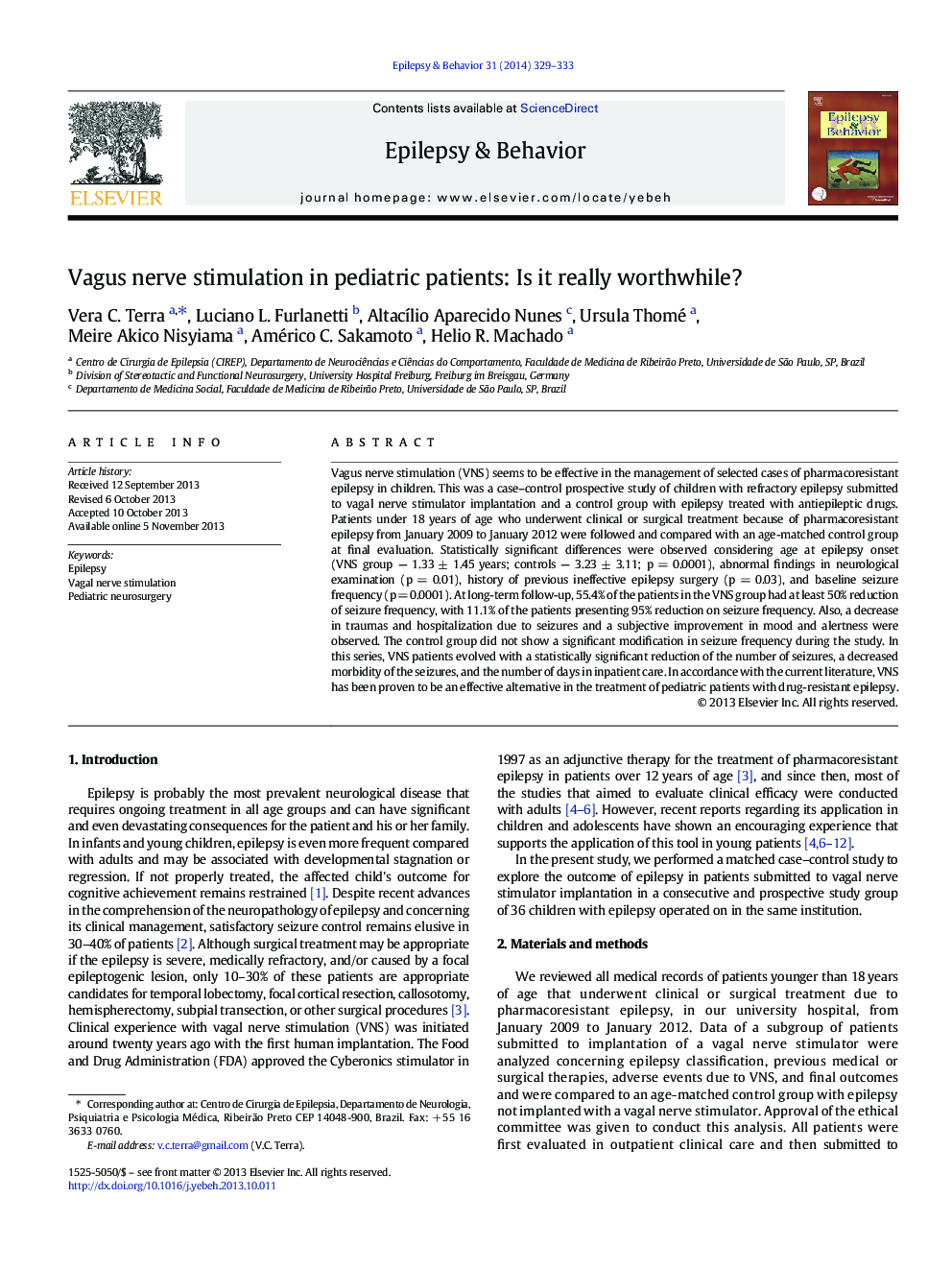| Article ID | Journal | Published Year | Pages | File Type |
|---|---|---|---|---|
| 6012593 | Epilepsy & Behavior | 2014 | 5 Pages |
Abstract
Vagus nerve stimulation (VNS) seems to be effective in the management of selected cases of pharmacoresistant epilepsy in children. This was a case-control prospective study of children with refractory epilepsy submitted to vagal nerve stimulator implantation and a control group with epilepsy treated with antiepileptic drugs. Patients under 18 years of age who underwent clinical or surgical treatment because of pharmacoresistant epilepsy from January 2009 to January 2012 were followed and compared with an age-matched control group at final evaluation. Statistically significant differences were observed considering age at epilepsy onset (VNS group - 1.33 ± 1.45 years; controls - 3.23 ± 3.11; p = 0.0001), abnormal findings in neurological examination (p = 0.01), history of previous ineffective epilepsy surgery (p = 0.03), and baseline seizure frequency (p = 0.0001). At long-term follow-up, 55.4% of the patients in the VNS group had at least 50% reduction of seizure frequency, with 11.1% of the patients presenting 95% reduction on seizure frequency. Also, a decrease in traumas and hospitalization due to seizures and a subjective improvement in mood and alertness were observed. The control group did not show a significant modification in seizure frequency during the study. In this series, VNS patients evolved with a statistically significant reduction of the number of seizures, a decreased morbidity of the seizures, and the number of days in inpatient care. In accordance with the current literature, VNS has been proven to be an effective alternative in the treatment of pediatric patients with drug-resistant epilepsy.
Related Topics
Life Sciences
Neuroscience
Behavioral Neuroscience
Authors
Vera C. Terra, Luciano L. Furlanetti, AltacÃlio Aparecido Nunes, Ursula Thomé, Meire Akico Nisyiama, Américo C. Sakamoto, Helio R. Machado,
